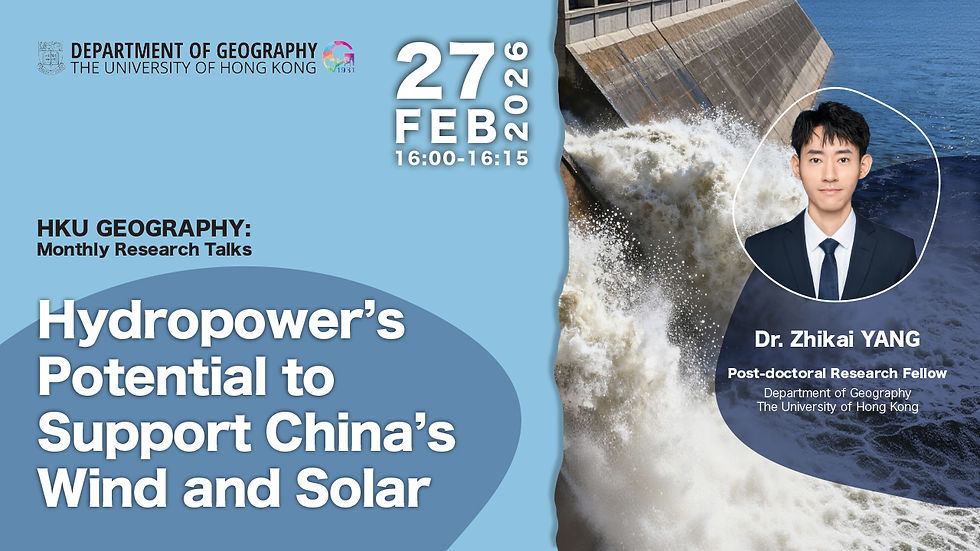04 OCT 2024 (FRI) 10:05-10:25
- Oct 3, 2024
- 2 min read
Dynamic Spatial Data in Sustainable Smart City
Ms. WONG Rosana Wai Man
(Supervisor: Prof Becky P.Y. Loo)
Abstract:
This thesis presents the first comprehensive investigation into the integration of dynamic spatial data within a sustainable smart city context. The thesis breaks new ground by addressing five key objectives. First, the sustainability benefits of precast concrete adoption in construction were investigated. Linear regression was then, applied to analyze the relationship between prefabrication degree and sustainability performance across 38 projects from 1998 to 2022. Results showed a positive correlation between Modular integrated Construction (MiC) adoption and improved sustainability metrics, which consist of six sub-indicators. The project with the highest prefabrication rate achieved the best overall sustainability score.
The second objective is to formulate a framework for cutting-edge technology for MiC support in smart construction. A case study of BIM-enabled blockchain multifunctional platform across 17 diverse MiC projects over five years from 2019 to 2024 was proposed. Results showed 68,882 MiC modules and 364,221 completed blockchain records with 99% pass rate, in quality control of MiC and other related products, identifying four critical MiC adoption stages.
The third objective is to discover the long-term sustainability impacts of integrated energy efficiency features and smart building operations management, a case study hotel, using seven years of operational data, was analyzed by employing Pearson's correlation, Seasonal Autoregressive Integrated Moving Average Variables time series analysis, and Structural Equation Modeling to quantify sustainability benefits across three pillars. Results showed that, environmentally, there was a 55.5% reduction in energy consumption. Economically, the hotel achieved 91% occupancy, a 4-year payback period, and 25% return on investment. Social benefits included improved guest satisfaction and lower staff turnover.
The fourth objective is to examine the impact of digital twin advancements on hotel management, focusing on energy consumption and water quality control in heating, ventilation, and air conditioning (HVAC) operations at a case study hotel. By analyzing 17,520 hourly energy consumption records and 682,657 minute-by-minute water quality readings, the digital twin integration was categorized into three stages. Results showed that digital twin integration provided comprehensive, real-time visualization of the HVAC system, enabling multi-level analysis. The fifth objective is to develop an AI-powered 'Knowledge Bot' to assist in regulatory compliance and sustainability assessment in the construction industry, introducing concepts. Using building construction regulations and BEAM Plus standards as case studies, ten bot variants were developed. The bots were tested using three prompt questions related to high-rise building construction and evaluated using expert questionnaires. The results were calculated with analysis of variance and Tukey's Honest Significant Difference post hoc tests. Results showed varying response times, productivity gains, and relevance levels among bots. Based on data from 16 construction projects, both the response time and relevance performance of the bots consistently outperformed the current practices in the industry.
This thesis contributes to the field by providing compelling evidence of the benefits of integrating dynamic spatial data with smart technologies and sustainable practices in urban development through case studies in Hong Kong. It proposes practical frameworks and applications for implementation, while also highlighting areas for future research.



Comments